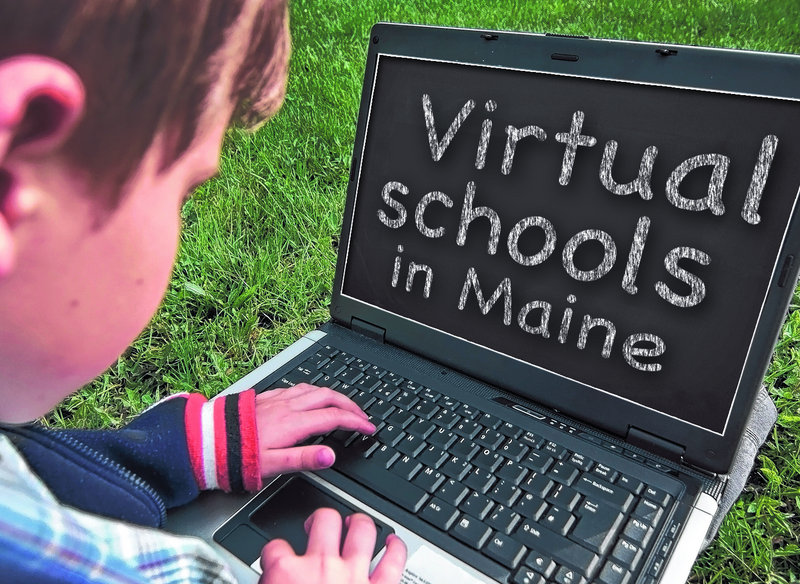A company seeking to operate a full-time virtual charter school in Maine is under investigation in Florida over allegations that it used uncertified teachers and tried to get employees to assist in concealing that fact from school district officials.
The Florida Department of Education confirmed that K12 Inc. of Herndon, Va., is under investigation by the department’s inspector general at the behest of the public school district in Seminole County, a largely suburban district in the Orlando area.
The company was at the center of a Maine Sunday Telegram investigation published Sept. 2 that showed how it was influencing the development of digital education policy in Maine.
Internal K12 Inc. emails obtained last winter by Seminole County Public Schools and forwarded to investigators suggest the company was using uncertified teachers in violation of Florida law, even after being warned by officials not to do so. K12 operates the Seminole Virtual Instruction Program for the district. The content of the emails was confirmed by Seminole County school officials.
In one email, a K12 manager asks certified teachers to file paperwork claiming they taught students they may never have had contact with.
“So if you see your name next to a student that might not be yours it’s because you were qualified to teach that subject and we needed to put your name there,” Samantha Gilormini, K12’s Florida Virtual Program project manager, wrote Seminole County teachers in February 2011. One teacher, Amy Capelle, balked at signing the form and pointed out that only seven of the 112 students listed on her form were actually hers.
According to Seminole County school officials, Capelle’s supervisor signed the form on Capelle’s behalf the day the teacher started her maternity leave.
“The use of Florida certified teachers is required by Florida statute and we have concern over the use of non-certified teachers by K12,” county officials wrote to the state Department of Education investigator. “Since K12 uses the same teachers across the state in virtual instruction programs, this issue may reach far beyond the borders of Seminole County.”
Cheryl Etters, a spokeswoman for the Florida Department of Education, confirmed that it was in the midst of “an ongoing investigation” of the company that started Feb. 23, but said that “it is not yet completed and a report has not been prepared.”
The department’s inspector general does not have prosecutorial powers. “When and if an investigation would be referred to law enforcement would depend on the findings of the investigation,” Etters said.
In response to a request for comment, K12 Inc.’s senior vice president for public affairs, Jeff Kwitowski, forwarded a company statement that said the company had been working closely with Florida investigators.
“K12 does not believe that allegations of any kind of violation are accurate,” the statement said, adding that “further comment would be inappropriate” while the company was still engaged with state officials on the matter.
The Tennessean newspaper in Nashville reported Monday that the K12-managed Tennessee Virtual Academy was under fire by state officials there for having ranked in “the bottom 4 percent of districts in the state on a measure that shows student progress from year to year” during its first year of operation.
K12 Inc. is one of two companies seeking to operate a full-time virtual charter school in Maine. The taxpayer-financed online schools – where students generally access most or all of their lessons and teachers via a home computer – were made possible under the charter school law passed by the Legislature last year.
The application for the K12-managed Maine Virtual Academy – and another managed by rival Connections Education of Baltimore – were tabled by the charter school commission in June. Both companies have since withdrawn their applications, but their local governing boards say they intend to resubmit them in the coming months.
Since the publication of the Maine Sunday Telegram investigation on digital learning, key Democratic lawmakers have expressed skepticism about allowing the establishment of full-time virtual charter schools in Maine. Republican lawmakers either said they had not read the article or did not respond to interview requests.
“Whatever Maine does we should do so carefully,” said Sen. Justin Alfond, D-Portland, who sponsored a digital education bill this year and serves on the Legislature’s education committee. “We should be taking a deep breath, looking at our options, and making sure that we continue to enhance our students’ ability to take online classes without removing the classroom and the experiences of being in school and the things you learn being on the playground.”
House Democratic leader Emily Cain of Orono, an opponent of both virtual and brick-and-mortar charter schools, said she was concerned about the track record of virtual schools in other states.
“We shouldn’t be promoting a failed educational model in Maine,” Cain said. “This isn’t about being against alternate delivery mechanisms of education, but about focusing on best practices and learning outcomes for kids. When you look at it that way, you can’t say that virtual schools are a good idea for Maine.”
House Speaker Bob Nutting, R-Oakland, said through a spokesperson that he didn’t wish to comment. Senate President Kevin Raye and several Republican members of the education committee did not respond to interview requests.
Sen. Garrett Mason, R-Lisbon Falls, said last week that he hadn’t had an opportunity to read the Sunday Telegram story, but that he supports virtual charter schools being included as part of Maine’s educational mix. He couldn’t be reached Tuesday.
“My philosophy on education has always been that every child learns different and there’s a different situation in every home across America,” Mason said. “Are virtual schools perfect? Probably not, but we’ve come a long way since the one-room schoolhouse in town. This is part of the future and we need to embrace it.”
Staff Writer Colin Woodard can be contacted at 791-6317 or at: cwoodard@mainetoday.com
Send questions/comments to the editors.


